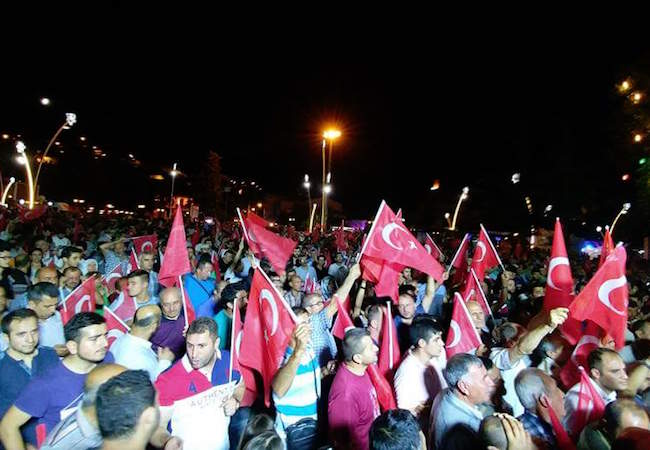
By Rene Wadlow
It is difficult to know now or even later the nature of the failed military coup in Turkey during 15-16 July 2016. Confrontation between factions has been long in the making. There have been successful military coups with a larger number of the military involved in the past so that military coups are part of the political culture of Turkey.
President Recep Tayyip Erdogan has found an easy target to blame in Fatullah Galen, a leader of a Turkish Islamic order, Hizmet (Service) influenced, at least in part by the Sufi teacher Said Nursi. Gulen had once been a supporter of Erdogan but who fell away in 2013. Gulen has been living since 1999 in self-imposed exile in the United States. Some Gulen supporters have posts in the government civil service, but there is little reason for Gulen to call for a coup.
What is clearer, however, is that there will be a large number of arrests of persons suspected of opposition. The government of President Erdogan has a constant history of silencing or marginalizing persons considered to be in opposition: newspaper editors and reporters, university professors, opposition members of Parliament, Kurds and other ethnic minorities. People are already being arrested. More are likely to follow.
Since Turkey is an important player in the armed conflicts in Syria and Iraq and in the refugee flows to Europe, there will be only muted calls for moderation and the rule of law from European and NATO government leaders.
Thus, the defense of human rights in Turkey is likely to depend largely on human rights non-governmental organizations, associations of lawyers, and academics defending academic freedom. It is necessary to organize as soon as possible to defend the rule of law, fair trials, the non-use of torture. There is a need to prevent a “guilt by association” atmosphere which may overtake many, especially members of Gulen’s Islamic order in the same way that the Egyptian military struck against Muslim Brotherhood members.
In order to inspire corrective efforts by governments, human rights defenders must demonstrate that their factual statements are true, and thus constitute a reliable basis for remedial governmental policy. I keep with me the words of the heart-felt cry of the Ambassador of Peru to the 1985 session of the UN Commission on Human Rights at the time when the government was fighting against the Sendero Luminoso “ Those making allegations before the Commission should first ascertain the facts!”
Fact finding in the field of human rights has a special importance and also encounters special difficulties both because of the subject-mater and because of the importance attached to it by public opinion. This is all the more so in the current Turkish case that President Erdogan has used the term “treason” concerning the actions of the coup military.
Thus, it is likely that the next few days will be crucial to develop a network of non-governmental observers, techniques of communication, ways of checking on information, and way of raising concerns with the Turkish authorities.




